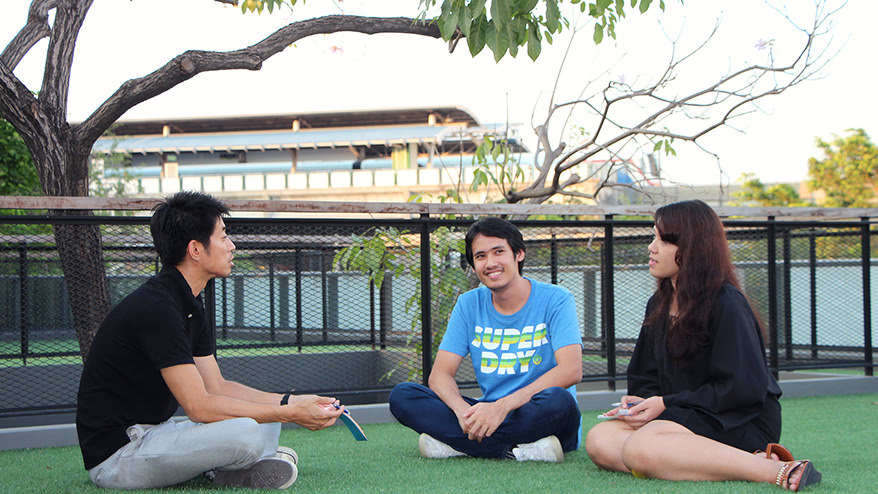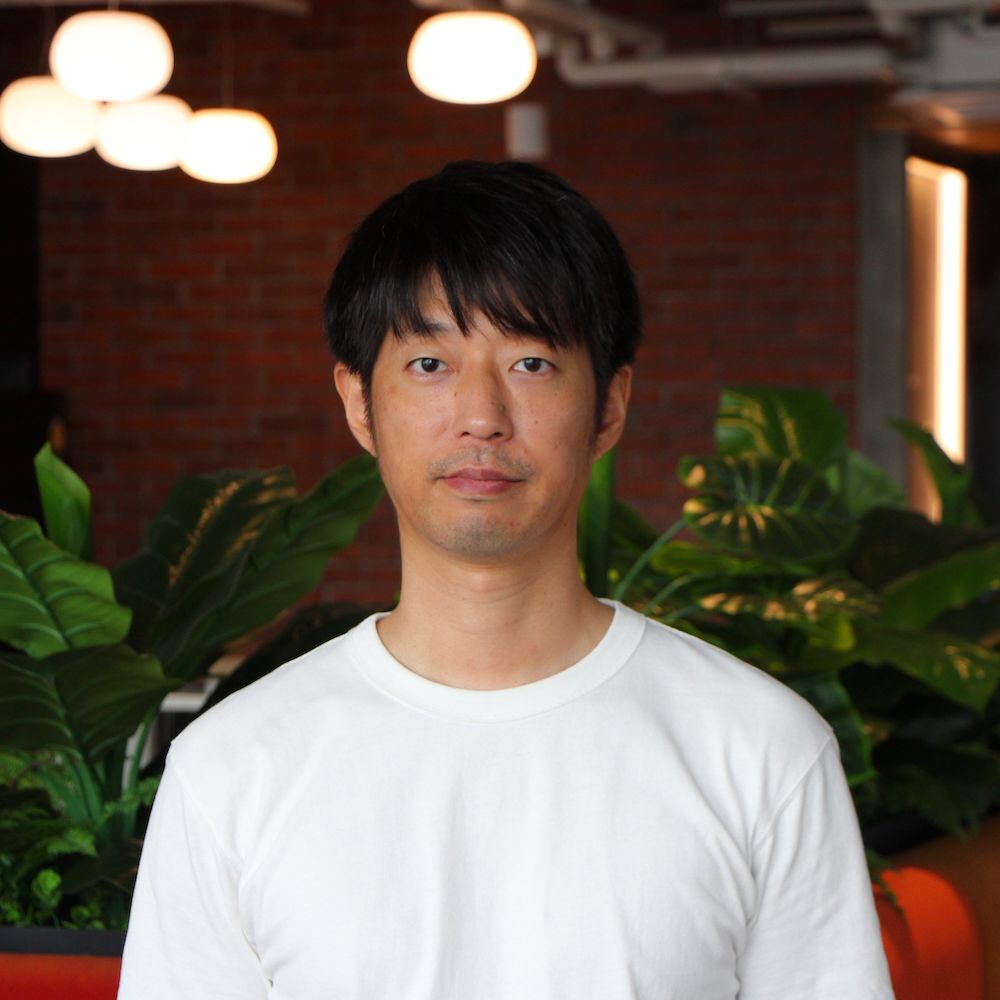This time, we bring you an interview with Tong, the coding team leader at Monosus Thailand.
Prior to joining Monosus Thailand, he worked as an engineer for Australian and Danish companies for five years, mainly focusing on back-end web development.
Now that he has been working at Monosus Thailand, a Japanese company, for two years, we asked him frankly what he thinks about the differences in working styles.
Differences between Japanese and Australian companies
Miyagawa : This may be out of the blue, but what is it like working at Monosus Thailand?
Tong is very busy (laughs)
Also, I think they’re all really good kids.
I don't think there are many companies in Thailand where everyone works so diligently (laughs).
There's always work to do.
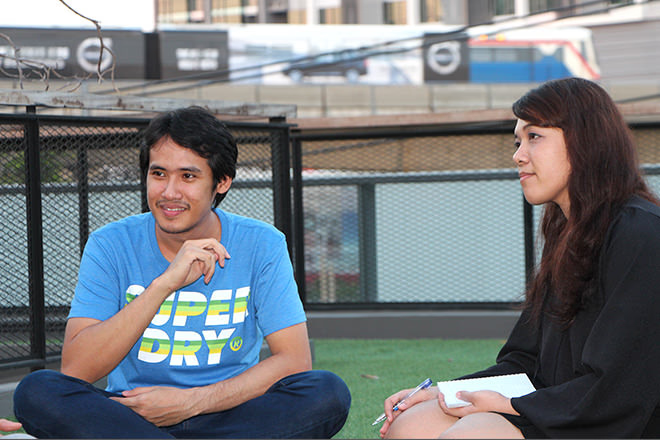
Coder Tong (left) and interpreter Fon (right)
Miyagawa: Were you bored at your previous company? Was the way you worked different?
TongIt 's not that I was bored, but for example, in an Australian company, what kind of work each person did was managed in detail by a timesheet on the company's internal system. It felt like they were trying to make me work hard, or rather, I was being forced to do it. However, depending on how I wrote it, I could cheat.
The team size started out at six people, but gradually grew to about 25 during my time there.
My boss clearly separated his work and personal time and usually left work on time.
Miyagawa: In a job like ours that involves deliveries, isn't it often difficult to leave work on time?
At my previous job, the work and deadlines for the day were flexible. The customers were not as strict as in Japan (laughs).
I think one reason for this is that we did everything from front-end to back-end in-house, but even if any problems arose during development, our customers were understanding and it was natural to make adjustments along the way.
They also saw us as business partners. In the West, there is no such thing as a "customer is god" mentality like in Japan (laughs).
I think Thailand is somewhere between Europe, the US and Japan.
What is expected of the Japanese people now?
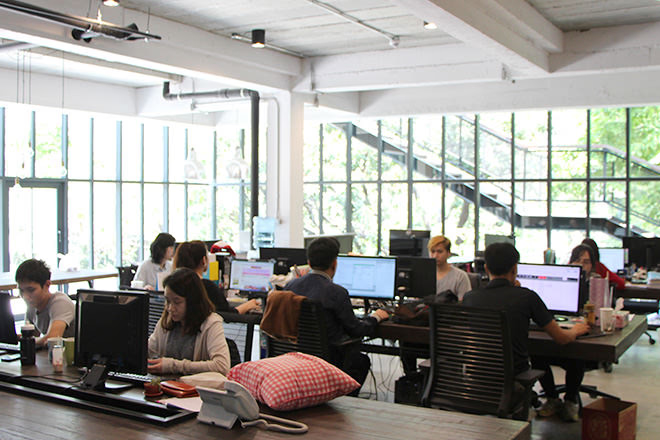
Currently, Monosus Thailand has 3 Japanese and 10 Thai staff members.
Miyagawa : I see. So why do you think people here work harder than at other companies?
Tong: I think they are choosing good people at the hiring stage, but I think they are influenced by the way Japanese people work seriously. They feel embarrassed when they are lazy.
However, I had the impression that Japanese people are strict about time management, but they are loose when it comes to finishing. Everyone often works overtime. I don't like that about them.
We also feel it's hard to leave if someone is still there. Of course, it depends on the person.
Director Miyagawa especially has to prepare for the next day, so I'd like to improve that aspect.
I would like to make this an even better company to work for, but are there any systems you think we should adopt similar to those used at your previous company?
Tong: There's nothing like that. I don't think the difference in the way we do things is good or bad.
However, I think it is good to be "middle-of-the-road."
When taken to extremes, what is "good" becomes "bad."
For example, I don't think it's good to try too hard, or to control too much.
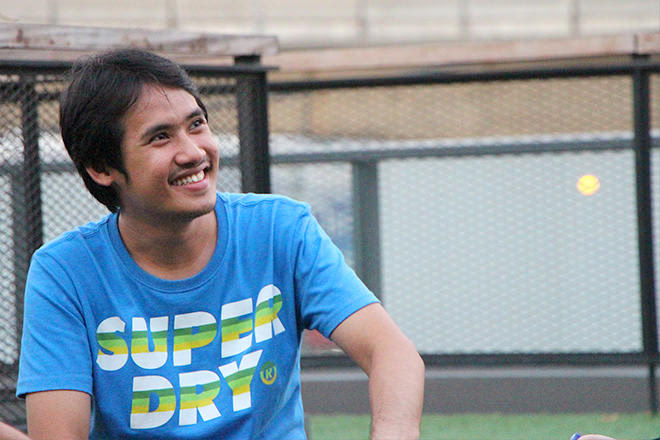
Another thing I would like to do is become closer to Japanese people.
I want to talk directly to everyone without an interpreter and communicate with them. Especially jokes. I want to go on a trip with everyone again.
When we had our office in CentralWorld before, there were fewer people and everyone seemed closer to each other. Now, everyone seems to work quietly.
Miyagawa-san, please talk to us more (laughs)
Either Thai or English is fine.
Miyagawa : Yes (laughs) I'll do my best.
Let's go on a trip.
Maybe we should make it a rule to go on a trip once we reach our budget each season (lol)
*1: A Buddhist concept that holds that two opposing extreme concepts or attitudes should be avoided.
After the interview
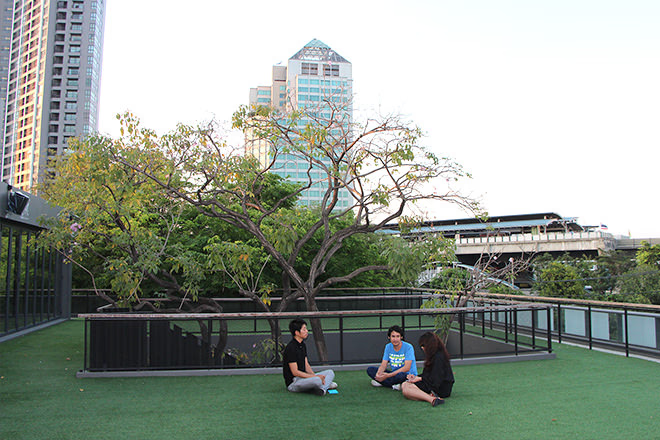
We ended up talking about wanting to go on a trip together, but it seems to me that Thai people, especially, tend to seek the same intimacy as friends in their relationships with colleagues at work, and with seniors and juniors.
It seems that they are not just in a relationship where they work together as a professional responsibility, but are genuinely close and want to enjoy things together and overcome difficult times together.
In order to respond to this joyful feeling, I would like to put into practice what I can do in my own way.
